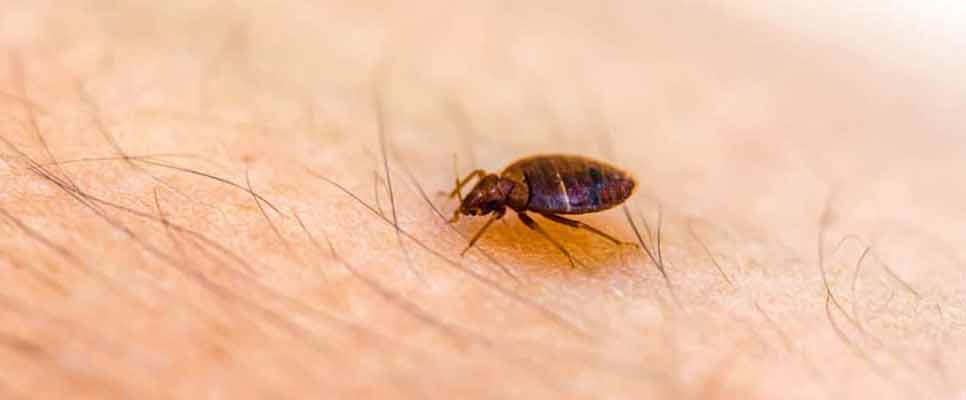A house without bed bugs is a happy, healthier house. Bed Bugs on beds. Your skin gets itchy even at the mere touch or bite of these little bugs. Bed bugs are small, oval insects without wings. They’re rusty brown and about 4 to 5 mm long when grown up, so they can hide in tiny spaces. These bugs like to drink blood and usually bite people, but they’ll also bite other warm-blooded animals. They’re most active at night, especially when people are sleeping in their beds. Two kinds of bed bugs bite humans, but one of them, C. hemipterus, is mostly found in tropical parts of Australia. Let’s discuss bed bug prevention and treatment because nobody should sleep with these unwanted guests.

Understanding Bed Bugs and Their Habits
- Bed Bugs’ Hiding Spots:
Bed bugs like to hide in things around where people sleep, such as mattresses, bed frames, furniture, behind walls, and even in cracks and tiny spaces.
- Nighttime Feeders:
Bed bugs come out at night to have a meal of blood. After eating, they go back to their hiding spots during the day.
- Growing Populations:
Bed bugs increase their numbers through reproduction. Female bed bugs lay eggs, which hatch into nymphs that mature into adult bugs. A single female can lay hundreds of eggs, contributing to the rapid growth of infestations.
- Bed Bug Troubles:
They show up a lot in places. Bed bug troubles typically involve infestations in living spaces, causing discomfort and potential health issues. These blood-feeding pests thrive in cracks, crevices, and bedding, and their bites can lead to itching and allergic reactions.
- Bed Bugs Love to Travel:
Bed bugs can travel long distances by hiding in the seams of clothes, luggage, bedding, and furniture.
- Survivors Without Meals:
Grown-up bed bugs can live without eating blood for over a year. They’re tough little creatures.
Identifying Bed Bug Signs and Symptoms
- Bed Bug Biting Troubles: Bed bugs let you know they’re around by continuously biting and causing irritation.
- Different Reactions: Some people don’t react to bed bug bites at all. Others might take up to nine days to react or feel immediate discomfort and lose sleep. Itching from the bites can even lead to skin infections in severe cases.
- Bite Locations: Bed bugs usually bite on the arms, shoulders, or any bare skin they can find. This can result in small swollen and itchy areas on your skin.
- Smells and Spots: When bed bug infestations are bad, you might notice a strange, sweet smell in the air. You might also see little blood spots on your mattress, bedding, or nearby furniture. These are signs that bed bugs are hanging around.
Bed Bug Prevention Advice & Simple Steps to Control Bed Bug Infestation
1. Identify the Issue: Look for tiny reddish-brown bugs, tiny white eggs, or tiny black specks if you wake with itching bites. You should also check your mattress, sheets, and any nearby furniture.
2. Stay Calm: Bed bugs are bothersome but don’t spread diseases. No need to freak out.
3. Keep the Affected Area Separate: If you find bed bugs, isolate the problem. Don’t shift stuff from there to different rooms in your house.
4. Cleaning: Keep your home clean. Clean your carpets, floors and bed with a vacuum cleaner. Cracks are where bed bugs hide. Keep your house nice and clean. Less clutter means fewer hiding areas for bed bugs.
5. Clean Everything: Wash your clothes, curtains, and bedding in hot water, then dry them in a high heat setting. This kills bed bugs and their eggs. Bed bugs can’t survive high heat.
6. Vacuum Everywhere: Clean up the entire room starting with your furniture, carpet, sofa, and mattress with a vacuum. Clean the vacuum outside to remove the trapped bed bugs.
7. Put Covers: Use specific bed bug-resistant covers to protect your mattress and box spring. They keep bed bugs away and stop new ones from coming in.
8. Call a Professional Pest Control Company: Bed bug battles are tough. It’s preferable to contact a pest control expert who is experienced in handling them.
Do’s and Don’ts
Here are some do’s and don’ts to keep in mind:
Do:
- Be Patient: Getting rid of bed bugs can take time and effort.
- Follow Instructions: Read and follow the instructions on any products you use carefully.
- Inspect Regularly: Continue inspecting your home for bed bugs, even after treatment.
- Seek Professional Help: Don’t hesitate to call a pest control professional if you can’t handle the infestation on your own.
Don’t:
- Use Outdoor Pesticides: Don’t use pesticides meant for outdoor use inside your home. They can be dangerous.
- Throw Out Furniture: Avoid throwing out furniture without proper treatment. You can save it by treating it.
- Ignore the Problem: Ignoring a bed bug infestation will only make it worse. Act promptly.
- Expect Immediate Results: It may take a few treatments to completely eliminate bed bugs.
Conclusion
You can stop bed bugs from entering your house and, if required, treat an infestation by taking a few easy actions. Keep in mind to remain attentive, take swift action, and don’t be afraid to ask for help if you need it.
Published on: December 21, 2023
Last updated on: December 23, 2023
